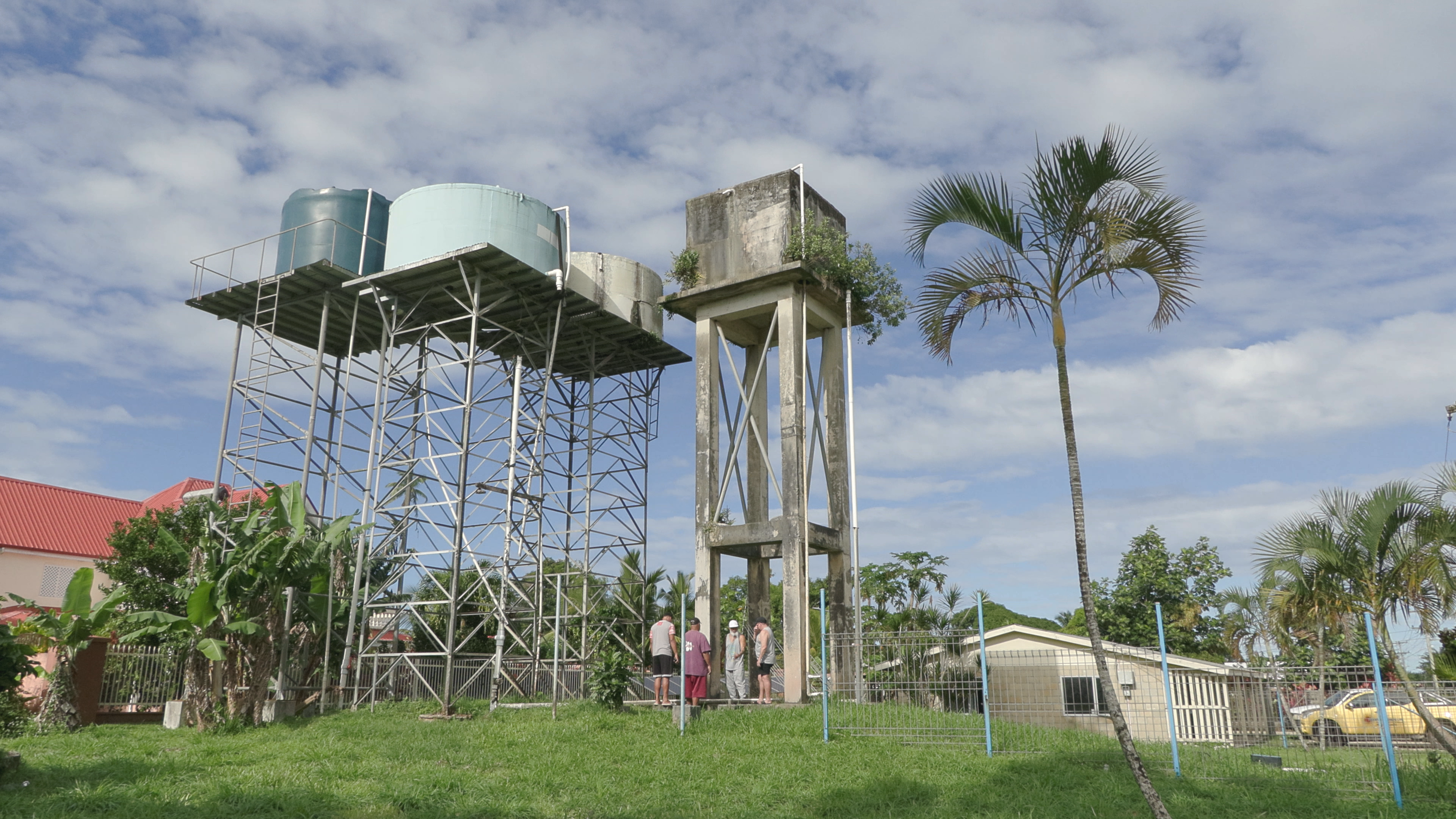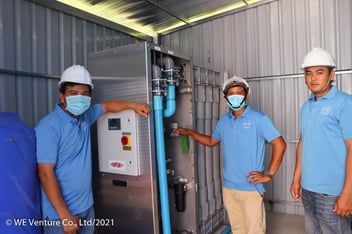Aussie company puts spotlight on Tongan water governance reform

While programs helping Pacific Islander communities with access to reliable water are hugely important, one Australian water company has embarked on an advocacy journey to support Tonga’s transition to a more sustainable water governance strategy.
While programs helping Pacific Islander communities with access to reliable water are hugely important, one Australian water company has embarked on an advocacy journey to support Tonga’s transition to a more sustainable water governance strategy.
Since 2019, Water Industry Solutions Group Founder and Director Peter Barwick has been working in Tonga to help communities design and install water provision solutions.
And, while the work on the ground in communities has led to a bigger focus on working with Tonga Water on long-term strategy, the opportunity to get involved first appeared when Barwick bumped into an old friend.
“I started my career as an apprentice fitter and machinist at the Cadbury chocolate factory in Tasmania. During that time I met Manu. He’s Tongan and we got on great. Many years passed, and my career evolved into water,” Barwick said.
“I worked for the Hobart Water Board before it transitioned into TasWater. I gained 10 years worth of water knowledge and experience there before I started my own business – Water Industry Solutions.
“My daughter Brieanna was playing in a Tasmanian statewide women’s league AFL grand final. I walked into the bakery at Campbelltown and ran into Manu, who I hadn’t seen for 20 years. He was there to watch his son play in the men’s statewide league grand final.”
After catching up on two decades worth of life, the topic of conversation turned to water.
“One of my dreams has always been to provide assistance with water and sewer issues in places that could use it. And Manu told me Tonga had some challenges in that area. Turns out, Manu’s brother worked at Tonga Water,” Barwick said.
“Manu told me he was planning a trip to Tonga in a few months. And I told him I was going with him.”
Village by village
After meeting with Manu’s brother Quddus, the first village Barwick visited was Hofa – Manu’s mother’s home. The community there had been dealing with supply reliability issues due to failed infrastructure.
“In the late 1970s, Japan implemented projects where they would dig wells for communities and supply a single-cylinder diesel pump. But that was a while ago now and the pumps are starting to fail. The parts are hard to come by,” Barwick said.
“After assessing the situation at Hofa, we went to Tonga Power. If we were going to change the pump from diesel to electric, we would need power reliability."
“At the time, Tonga Power had a big project with some international assistance to increase the reliability of the power supply in Tonga. Hofa was included in that project, so we could be confident the power supply would be sustainable before going further.”
After discussing the particulars, measuring the site and considering the appropriate design, Barwick sourced a pump in Australia. But before he could return to help install it, COVID hit.
“Through a bit of a language barrier, we ended up installing it via correspondence over email. The community was incredibly excited to have that source back. The new pump was a lot quieter, a lot more reliable and higher capacity, too,” Barwick said.
“The pumping solution is working really well at the moment. Even with the volcano eruption and the tsunami, it was one of the townships that other villages came to to source water from. That was really great to hear.”
In June 2023, Barwick returned to Tonga to visit more communities to assist with new solutions, but also to spend time with Tonga Water to discuss a broader water provision strategy.
“We also took a videographer, Martin Duffy, with us to record the journey. And we are going to make a broad and informative documentary about the issues with water in Tonga. This is a big issue that impacts a lot of people and communities, we want to share that story,” he said.
“I can go and help communities on the ground. I can install pumps, one by one, village by village. But this is not providing a sustainable solution. We want to help generate a change in governance, as well.”
Plans of change
Barwick said he became particularly interested in Tonga Water’s governance structure when he realised how similar it was to the way Tasmania’s water supply network used to run before TasWater was formed in 2013.
“While we have learned about the challenges of some of the villages, which are usually around reliability and sustainability, Tonga Water has developed ideas for a really holistic approach and system,” he said.
“The current governance model reminds me so much of where Tasmania was placed with water management only 10 years ago."
“Each township has its own reticulation system managed by the village who are also responsible for maintenance, reading water meters and collecting payment. A trunk main supply’s the capital Nuku’Alofa and is managed by Tonga Water Board, who also manage disinfection and billing.”
Barwick said the reform model launched in Tasmania 10 years ago – with all water supply and treatment operations centralised within one state-wide utility – could work very well within the Tongan context.
“Tonga Water has done a lot of work on climate change modelling. They have looked at how rainfall has changed and know a lot about their aquifer systems on Tongatapu and other islands,” he said.
“But Tonga Water could also become responsible for all the water distribution and treatment throughout the island. They’d have a larger balance sheet, but all of the expertise would be condensed and communities wouldn’t need to be reliant on volunteers."
“Water is one of the most pressing and essential human needs. I’ve seen grown men reduced to tears of happiness when a reliable water supply has been re-established for their community. Access to reliable water makes so much of a difference to people's everyday lives."
“We want to help raise awareness around this issue to support Tonga as they work towards a more sustainable system for their people.”
Barwick said that, while Tonga Water has a vision for a more holistic and sustainable water management strategy, the island will need resourcing and assistance to get the ball rolling.
“Tonga Water has done some really great work on how to have an overall solution for the majority of the kingdom. But they don’t have the capacity to fund it. There is an opportunity here for us to help, we just need to lend a hand,” he said.
“We are going to continue to help where we can on small projects in communities. But more broadly, we are keen now to raise awareness on Tonga’s water provision issues at a national and international level.”

.jpeg?width=352&name=WhatsApp%20Image%202024-10-01%20at%203.52.48%20PM%20(3).jpeg)
